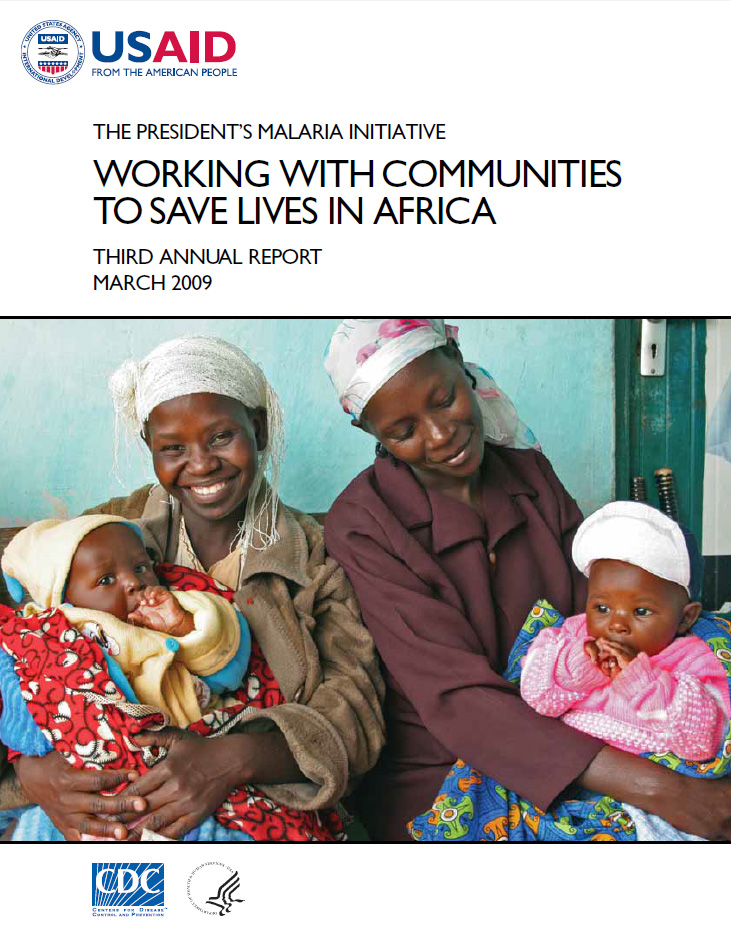Malaria is a preventable and treatable disease. It remains one of the major causes of illness and death among children in Africa, and is estimated to account for 300 million to 500 million illnesses and nearly 1 million deaths each year, with 90 percent of those deaths in children under five years of age. Malaria also places a tremendous burden on national health systems and individual families. Economists estimate that malaria accounts for approximately 40 percent of public health expenditures in Africa and causes an annual loss of $12 billion, or 1.3 percent of the continent’s gross domestic product. Malaria and poverty are closely linked; the greatest burden of malaria usually falls on residents of rural areas, where access to health care is limited by cost or distance. As a result, the control of malaria is a major objective of the U.S. foreign assistance program.
The President’s Malaria Initiative (PMI) is a historic$1.2 billion, five-year expansion of U.S. Government (USG) resources to reduce the intolerable burden of malaria and help relieve poverty on the African continent. The goal of PMI is to reduce malaria-related deaths by 50 percent in 15 countries with a high burden of malaria by expanding coverage of four highly effective malaria prevention and treatment measures to 85 percent of the most vulnerable populations – pregnant women and children under five years of age. Progress under PMI in scaling up malaria prevention and control interventions during the last 36 months has been dramatic. The belief that malaria in sub-Saharan Africa really can be controlled is already being substantiated with clear evidence of reductions in malaria burden in many of the PMI focus countries.








Comment
Make a general inquiry or suggest an improvement.